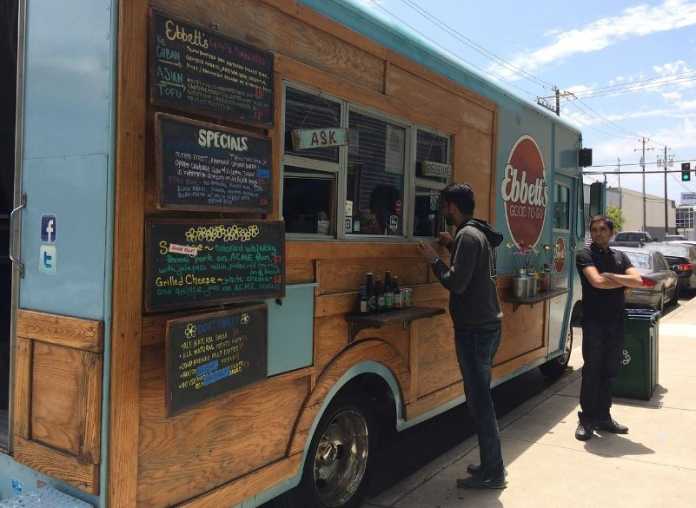Embarking on the journey of starting a food and beverage business from scratch is a thrilling endeavor that combines passion with entrepreneurship. Whether you’re envisioning a cozy cafe, a trendy food truck, or a fine dining establishment, the road to culinary success is paved with careful planning and strategic decision-making. In this guide, we will navigate the intricacies of launching your venture, providing essential insights for aspiring entrepreneurs. From the initial concept to the execution of a successful business plan, we’ll explore the key considerations that will set you on the path to creating a delectable and memorable experience for your customers. Join us as we delve into the exciting world of culinary entrepreneurship, where creativity meets business acumen in the pursuit of gastronomic excellence.
Why Is Working With A Professional Accountant Important?
In the intricate tapestry of launching a food and beverage business, the role of a professional such as the London accountants Howlader & Co. cannot be overstated. The financial complexities inherent in the industry demand a meticulous approach that goes beyond basic bookkeeping. A seasoned accountant brings a wealth of expertise, offering crucial insights into budgeting, tax planning, and financial forecasting. In an industry where slim profit margins and stringent regulations prevail, their guidance is instrumental in navigating challenges such as inventory management and cost control.
Moreover, a professional accountant ensures compliance with industry-specific regulations, safeguarding your business against potential legal pitfalls. They provide a strategic financial perspective, helping you make informed decisions that contribute to the long-term sustainability of your venture. From tracking expenses and managing cash flow to offering advice on financial efficiency, their role extends beyond number-crunching.
What Are the Specifics of the Food and Beverage Industry?
The food and beverage industry is a dynamic landscape shaped by diverse consumer preferences, culinary trends, and ever-evolving market demands. Success in this field requires a nuanced understanding of its unique specifics. Sourcing quality ingredients, managing inventory effectively, and delivering an exceptional customer experience are just a few of the industry’s intricacies.
Navigating the regulatory environment is crucial, with stringent health and safety standards that demand meticulous attention. Seasonality often influences ingredient availability, impacting menu planning and pricing strategies. The competitive nature of the market underscores the importance of creating a distinctive brand and establishing strong supplier relationships to ensure a consistent supply chain.
How To Start a Food and Beverage Business from Scratch: 10 Important Steps
Embarking on the journey of starting a food and beverage business from scratch is an exhilarating endeavor that demands a blend of culinary passion and business acumen. To turn your gastronomic dreams into a thriving reality, consider these vital steps:
1. Market Research
Begin by understanding your target audience, local competition, and emerging food trends. This insight will shape your unique selling proposition and business strategy, ensuring you cater to the preferences of your potential customers.
2. Business Plan
Develop a comprehensive business plan outlining your concept, target market, financial projections, and marketing strategy. This serves as your roadmap, guiding your business decisions and providing a compelling document for potential investors.
3. Legal Compliance
Navigate the legal landscape by obtaining the necessary licenses, adhering to health and safety regulations, and ensuring compliance with food handling standards. Overlooking legal requirements can lead to severe consequences that may jeopardize your business.
4. Location and Ambiance
Choose a strategic location that aligns with your target market. The ambiance and design of your establishment play a crucial role in attracting and retaining customers. Create an environment that complements your culinary concept and resonates with your desired clientele.
5. Supplier Relationships
Cultivate strong relationships with reliable suppliers to ensure a consistent and high-quality supply chain. Negotiate favorable terms to manage costs effectively and guarantee the availability of fresh and premium ingredients.
6. Menu Development
Craft a menu that reflects your brand and appeals to your target audience. Balance creativity with practicality, considering cost, seasonality, and dietary trends. A well-curated menu enhances the overall dining experience and sets you apart from competitors.
7. Marketing and Branding
Develop a strong online and offline presence to create awareness and build anticipation. Utilize social media, partnerships, and promotions to engage with your audience. Consistent branding, from your logo to the ambiance of your establishment, contributes to brand recognition and customer loyalty.
8. Staffing and Training
Recruit skilled and passionate staff who align with your brand ethos. Invest in training to ensure consistent service quality and uphold your business values. Employee satisfaction is integral to customer satisfaction.
9. Financial Management
Work closely with a professional accountant to establish robust financial systems. Monitor cash flow, manage expenses, and implement cost-saving measures. Financial stability is the backbone of your business’s sustainability.
10. Customer Feedback and Adaptation
Regularly solicit and act upon customer feedback. Adapt your offerings based on changing trends and preferences to stay relevant in a dynamic industry. Customer satisfaction and loyalty are essential for the long-term success of your business.
Conclusion
Starting a food and beverage business demands a meticulous blend of culinary artistry and business savvy. Crucial steps include thorough market research, a comprehensive business plan, and adherence to legal requirements. The significance of a strategic location, strong supplier relationships, and a well-crafted menu cannot be overstated. Equally important is the development of a robust online and offline presence, coupled with employee training and financial stability. Regular customer feedback and adaptation to industry trends ensure sustained success. By navigating these key steps, aspiring entrepreneurs can transform their gastronomic dreams into a thriving reality in the dynamic and competitive world of food and beverage.
































